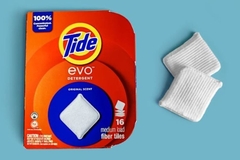EU enforces six-month anti-dumping duties on Chinese TiO2 imports

19 Jul 2024 --- The European Union (EU) implements provisional anti-dumping duties on China’s titanium dioxide (TiO2) imports to protect the EU market from unfair trade practices.
The regulation focuses on TiO2 used in various applications that contain at least 80% titanium dioxide by weight. TiO2 is a fine white powder chemical used in industrial and consumer products such as cosmetics, paints, paper, plastics, food, etc. It is used in products where brightness is required, such as sunscreens and pressed and loose cosmetic powders.
The provisional anti-dumping duties are designed to prevent Chinese companies from selling titanium dioxide at unfairly low prices, which the EU says can harm the industry by undercutting local producers.
In the context of the regulation’s anti-dumping duties, provisional duties are temporary measures, up to six months, imposed to address issues while the investigation continues.
Affected parties and imposed limits
Exporting companies have different rates for the provisional anti-dumping duty. The LB group is subject to a 39.7% duty, and the Anhui Gold Star group is met with a 14.4% duty.
 Customs authorities must enforce new duty rates and registration discontinuation for TiO2 imports under the latest EU regulation.All other imports from China are subject to a 39.7% duty, while other cooperating companies listed in the regulation’s annex face a 35.0% duty.
Customs authorities must enforce new duty rates and registration discontinuation for TiO2 imports under the latest EU regulation.All other imports from China are subject to a 39.7% duty, while other cooperating companies listed in the regulation’s annex face a 35.0% duty.
The regulation states that businesses must submit a valid commercial invoice to the EU customs authorities to apply the designated individual duty rates. The invoice must include a declaration attesting to the product’s origin and manufacturing specifications. If the invoice is not received, all imports from China will be subject to the highest duty rate of 39.7%.
The regulation further requires a security deposit equal to the amount of the provisional duty before allowing these products to be released onto the EU market.
The interested parties have 15 calendar days from the regulation’s entry into force to submit written comments to the European Commission (EC).
Customs officials are directed to discontinue registering imports by the former EU regulation 2024/1617.
Economic analysis
The EC evaluated the EU industry’s economic health using macroeconomic and microeconomic indicators. It claims companies in the EU experienced a decline in key performance indicators during its three-year investigation, which started in 2020.
The EC found a price undercutting margin of 14% to 15.3% for Chinese imports, representing about 70% of total imports from China. It says that despite rising costs, Chinese imports pressured EU producers to lower their prices, resulting in price suppression and depression within the EU market.
The analysis reveals production volume fell by 31%, and sales volume decreased by 25%, despite a smaller 22% drop in overall EU consumption. The industry’s market share dropped from 49% in 2020 to 47% during the investigation period.
However, Chinese imports increased by 17%, with their market share rising from 15% to 22%.
Due to less Chinese competition and increased demand in 2021, the EU industry experienced a brief uptick, but the investigation period reversed this. During this time, the industry faced a 71% rise in production costs, but sales prices only increased by 31%, leading to a drop in profitability and making the industry unprofitable.
 TiO2 is used in products where brightness is required, such as sunscreens and pressed and loose cosmetic powders.The EC found that Chinese imports were suppressing EU industry prices and causing price depression, especially in the investigation period when Chinese import prices fell.
TiO2 is used in products where brightness is required, such as sunscreens and pressed and loose cosmetic powders.The EC found that Chinese imports were suppressing EU industry prices and causing price depression, especially in the investigation period when Chinese import prices fell.
2023 Investigation
Last November, the EC opened an anti-dumping investigation targeting companies from China with a Notice of Initiation published in the Official Journal of the EU.
Multiple parties submitted feedback on the initiation in support and against it. These included the product’s scope, the EU industry’s claimed harm, the target profit used to calculate injuries, the causal relationship and the EU’s interest.
Pigment maker Sun Chemical requested the EC exclude uncoated TiO2 from the scope of anti-dumping measures following an earlier request to exclude graphic TiO2. Sun Chemical is based in the US but has facilities worldwide, including in China. It argued that the market for uncoated TiO2 is niche and that anti-dumping duties would harm its competitiveness outside the EU.
However, this request for such claims was submitted after the November deadline. The EC emphasized that comments on the product scope must be submitted early in the investigation to allow sufficient time for evaluation and feedback from other interested parties.
The EC said Sun Chemical did not provide a necessary questionnaire response to support its claim. Consequently, it did not consider the company’s request due to the late submission and lack of verification.
By Venya Patel













